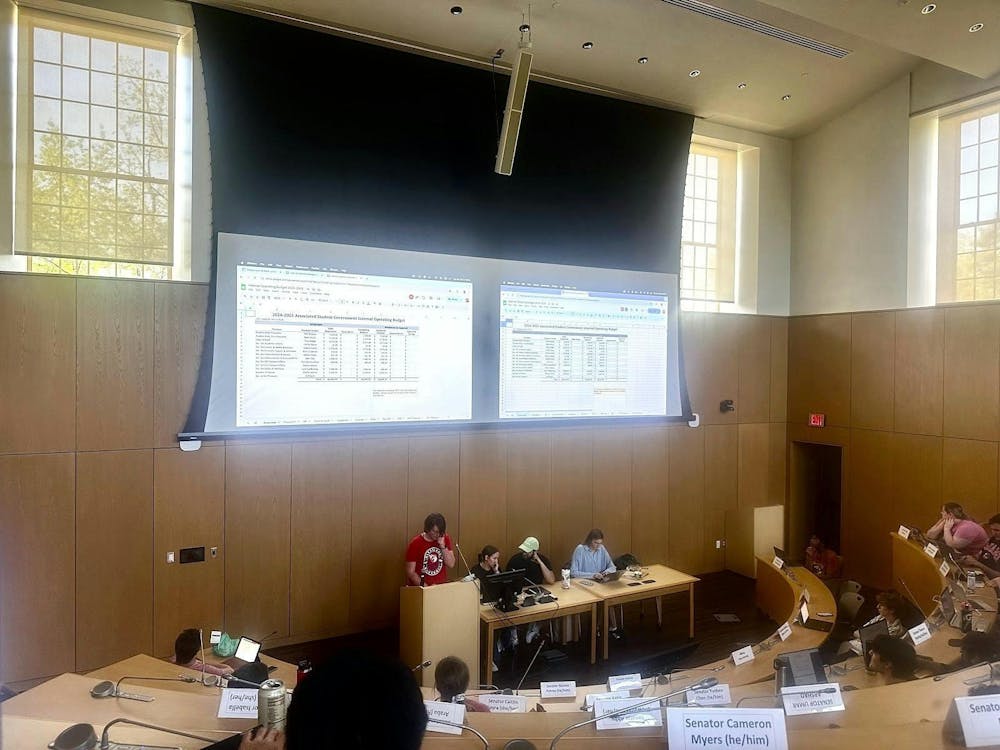Jane Smith, who is using a pseudonym to protect her job, chose her economics major before beginning her first year at Miami University. It was secure, reliable and interesting. But by her sophomore year, she felt stuck. There was something missing, but she didn’t know what.
“I liked economics,” Smith said. “I liked the psychological and behavioral part of it. But I wasn't super passionate about the internships and jobs that I was hearing about during freshman year for my major.”
It wasn't until the beginning of junior year that Smith began an individualized studies major, with a concentration in economic studies and public health.
But why did it take two years for the switch to happen? For some students, Smith’s experience is familiar. Not only at Miami, but nationally as well. Pressures like program cuts and financial earnings convince students like Smith to choose a different major. Why are these cuts happening, and what departments are being affected?
Anne Whitesell, an associate professor of political science, said, from a policy standpoint, many of the cuts are directly linked to Miami’s new budget model, RCM 4.0. The model is designed to represent earnings from students who graduate from a specific program.
She shared the correlation between the budget model and post-graduation earnings.
Enjoy what you're reading?
Signup for our newsletter
“Part of the funding for departments comes from how much students make within a major from that department,” Whitesell said, “so it's using data nationally about how much students make after graduation.”
The concern for accuracy and representation arises, with certain departments historically having low average salaries post graduation.
“This disproportionately affects the humanities,” Whitesell said. “Taking the average of what students make doesn't really capture the potential [of a major].”
Senate Bill 1, Ohio’s higher education reformation eliminates DEI programs with lower enrollment rates. With RCM 4.0 and Senate Bill 1, the humanities have seen a national decline in these student enrollment rates. The relationship between this decline and policies is strong, but Whitesell said there are other forces at play.
“If you are an engineering student, it's pretty obvious what you're going to do,” Whitesell said. “You’re paying a lot of money for college, so in some ways, students want to know what the return on investment is. It seems safer to say that I'm definitely going to enter a major where I know what kind of job I'm going to get in the end.”
That was the same struggle Smith endured for most of her first year.
“I was definitely super stressed about that, the feeling of I don't know what to do,” Smith said. “Especially when you're in an educational environment where you're surrounded by other people who are specifically stating what it is they want to do.”
Students like Smith are experiencing the financial pressure of college before they even graduate. Why then, has it become more expensive to pick a major?
Riley Acton, an associate professor of economics, studies the factors of college student enrollment choices. She said the problem isn’t just occurring at Miami.
“There is a [national] structural decrease in the number of 18-year-olds, [which] is projected to be a decrease in college-going students,” Acton said. “People tend to have fewer kids in recessions. Eighteen years ago, it was the great recession, so people were having fewer kids in 2007, 2008 and 2009. This puts financial stress on colleges.”
With universities expecting this decline, they became innovative in ways to maintain their expenses with fewer students. To function well financially, Acton said some states have turned to approaches similar to Ohio’s Senate Bill 1.
“A lot of colleges and universities are doing this,” Acton said. “If you have a program that very few students are in, you're probably paying a lot [in terms of] the revenue that it's bringing in.”
The benefits of this structured plan are unknown. Some, like Acton, feel as though there should not be a total elimination of certain subjects.
“Just because people are majoring in one particular subject, doesn't necessarily mean that they're not taking classes in another subject,” Acton said. “Or, that there's no value being added to the university by having that subject available to students.”
Universities across the nation are taking steps to combat the changing higher education landscape. What can students do to navigate this changing college prospect?
“My big takeaway message,” Acton said, “is to think about core skills, competencies, and knowledge you can gain during the four years that you’re here that can set you up for success in a wide variety of areas.”




